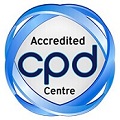
Alka Parashar
Sarojini Naidu Govt. Girls PG Autonomous College, India
Title: Application of simulation modeling in planning and cost–benefit assessment of traditional fishery and aquaponics technology for livelihood generation and sustainable development: A case of Tawa command area, India
Biography
Biography: Alka Parashar
Abstract
Operationalization of sustainable development would entail search for innovative options that cause minimal environmental media and resource degradation, while maximizing socio-economics benefits in terms of environmental planning, policies and system’s management. Computer simulation modeling is identified as a powerful tool for charting out better options for sustainable development. The paper aims at exploring the utility of qualitative/semi-quantitative simulation modeling methods in innovative-strategic planning, management and development. The specific methods for modeling of aquaponic/aquaculture dynamics are investigated as cross impact simulation and system dynamics. For the sake of illustration a simulation model has developed for cost benefit and economics of aquaponic/aquaculture system of tawa command area in India. The SD model is designed to develop and integrates the cause and effect relationships of the variables in pond dynamics, related issues to climate, farmer’s interest, peoples liking, demand, marketing and cost-effectiveness of aqua/aquaponic systems. The model has the potentiality to incorporate various policy options to improve aquaculture/aquaponic systems for livelihood generation and sustainable development of the region.

